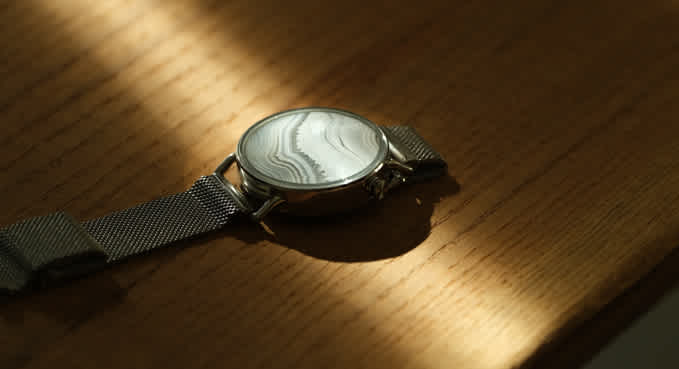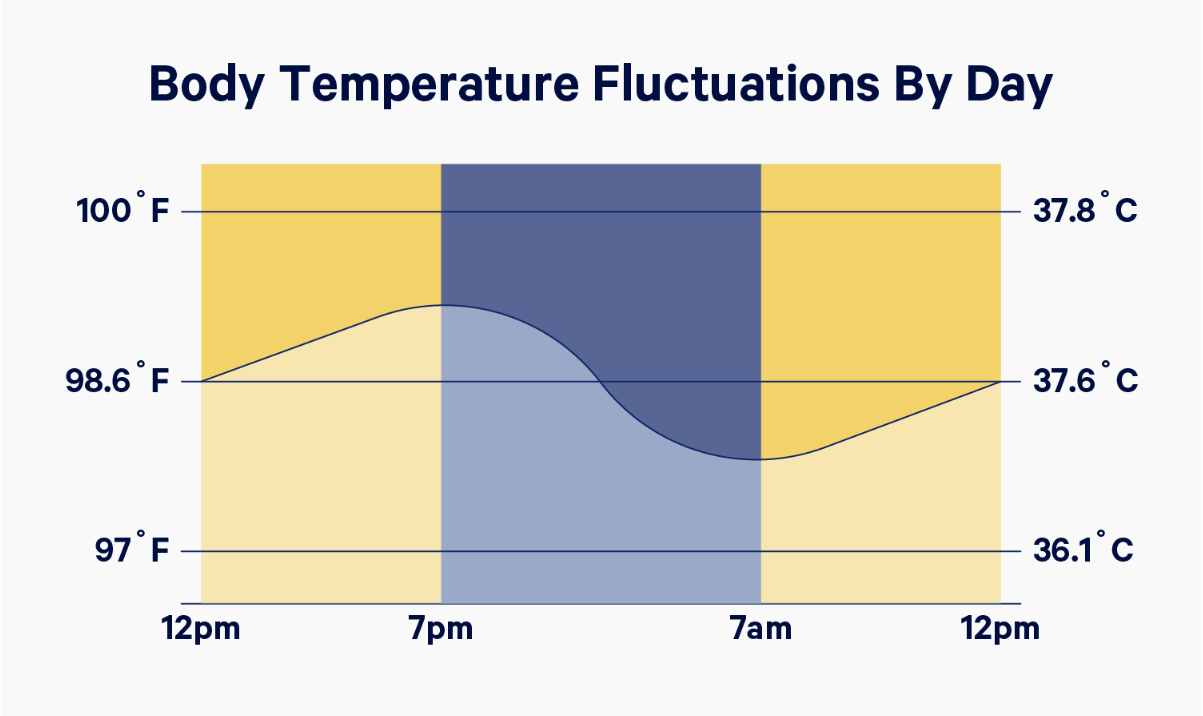Back to overview
6 min read
5 science-backed tips to improve your sleep
Sleep is incredibly important for your physical and mental health. Bad sleep affects your mood, energy level, stress-resilience, immune system, productivity, concentration, memory, and the list goes on and on.
1. Establish a soothing bedtime routine
What you are doing during the hours before bedtime influences your sleep. Make sure to follow a soothing bedtime routine that involves a set of activities that occur in the same order on a nightly basis before bed. Take some time to wind down, release your thoughts and relax your body in the evening. You can do relaxing activities an hour or so before bed. You can take a bath (the rise, and then fall in body temperature promotes drowsiness), dim the lights and read a book, do some yoga stretches, practice meditation, or have an evening stroll. Avoid stressful or stimulating activities - such as work, intensive discussions, and horror movies - before going to bed. If you tend to have racing thoughts in bed - this doesn’t work for everyone - you can calm your thoughts through journaling and let it all out.

NOWATCH
2. Follow a consistent sleep schedule
Try to go to bed and get up at the same time every day and make sure you maintain this sleep schedule during the weekends to avoid jet lag-like symptoms. Which sleep and wake times work best for you depends on your chronotype and the amount of sleep that you need. If you’re getting enough sleep, you should be able to wake up naturally without an alarm. A consistent sleep schedule that reinforces your natural sleep-wake cycle (circadian rhythm) will improve your sleep and help you feel more refreshed and energized in the morning.

NOWATCH
3. Lower your stress levels during the day
Feeling too alert to fall asleep? Experiencing racing thoughts? These problems can stem from your daytime habits. If your brain is overstimulated during the day, it can be difficult to slow down at night. Maybe you are overwhelmed at work, or you are constantly distracted by notifications, or you have a very busy household… There are numerous reasons why you may feel very tense and alert. Lowering your stress levels during the day can help calm your mind at bedtime.
With NOWATCH you can continuously measure your stress levels and predict your cognitive zone up to 60 minutes in advance. If your NOWATCH predicts an overstimulated mental state, the watch will provide a vibrational signal for a reminder to do a relaxation exercise.

NOWATCH
Examples of relaxation exercises:
Breathing slowly from your belly to active the relaxation response
Box-breathing: breathe in for 4 counts, hold for 4 counts, breathe out for 4 counts and pause for 4 counts
Body scan to release tension in different parts of your body
Listening to soothing music
Having a walk outside in the fresh air
A bidirectional relationship exists between stress during daytime and sleep. If you had a bad night’s sleep, you will be less resilient to stress, increasing the chances to feel overwhelmed or overstimulated. As you may experience more stress and overwhelm during the day, this can also cause difficulty in falling asleep. It’s like a vicious cycle that needs to be interrupted by moments of relaxation.
4. Change your bedroom into the ideal sleep environment
Did you know that your bedroom highly influences the quality of your sleep? A dark, cool and quiet bedroom with good ventilation improves your sleep quality. Let’s discuss how light, temperature, and noise levels influence your sleep.
Temperature
Regulation of body temperature, also called thermoregulation, is important for good sleep. Physiological processes help to maintain a body core temperature of around 37 ℃ in different environmental and behavioral situations. Skin blood flow, hormone levels, shivering and sweating help to maintain an optimal body core temperature.

Parmeggiani PL. Temperature regulation during sleep: a study in homeostasis.
During sleep, thermoregulation is also active but is reduced during REM sleep. Therefore, changing environmental temperatures can affect REM sleep quality. Furthermore, body core temperature can influence sleepiness at night and how long it takes to fall asleep. To prepare for good sleep at night, your body core temperature needs to slightly drop. This drop in core body temperature is related to your natural internal clock, or circadian rhythm, and prompts sleepiness and melatonin production (melatonin is a hormone that signals the body to prepare for sleep).
To establish this drop in body core temperature and fall asleep more easily, the environmental temperature should be around 18 ℃. A lower room temperature enables the release of heat via the skin into the environment. In warmer climates, it can therefore be difficult to fall asleep. An air conditioning system or fan can help establish a lower room temperature.
If you wake up, according to your circadian rhythm, your body core temperature should rise again. You can set your thermostat to turn on just before your alarm clock should ring to help you wake up in the morning, or you can drink a warm cup of coffee or tea to warm up your body.
Noise
While we are asleep, our brains are able to process incoming auditory information. That’s why noise can actually disrupt your sleep. The effect of noise on sleep includes an increased number of awakenings and changes in sleep stages. Depending on the type of noise and how you perceive it, the effects of noise on sleep can vary. The World Health Organization guidelines say that for good sleep, the sound level in the environment should not exceed 30 dB(A) for continuous background noise and 45 dB(A) for individual noise events. So for you to sleep well, noise should be lowered as much as possible. You can decide to wear earplugs to eliminate noise. If you cannot eliminate noise events, continuous white noise can be useful, for example by turning on a fan. This white noise can block out sudden variations in noise, helping you to stay in deep sleep and wake up refreshed.
Light
Natural light keeps your internal clock in line with a healthy sleep-wake pattern. Production of melatonin, our sleep hormone, which makes you feel sleepy at night, is influenced by light entering the eyes. When light shines into your eyes in the morning, melatonin production slows down. At night, when it gets darker and less light reaches your eyes, melatonin production increases. The amount of melatonin, therefore, follows your circadian rhythm.
It’s important to have complete darkness in your bedroom to keep your melatonin levels high during the night. So make sure you have blackout curtains and turn off all lights when you go to bed.
Do you experience difficulty waking up, or do you feel very sleepy in the morning? Make sure to go for a walk in daylight as early as possible, or sit close to the window. You will experience that light will help you wake up, as melatonin drops.
Do you feel very awake at night, while you should feel sleepy? Lower light exposure by dimming the lights and limiting screen time, especially within 1-2 hours of your bedtime. A dark environment helps to stimulate the production of melatonin, your sleep hormone, which will make you feel sleepy.
In winter, it can be quite challenging to get enough daylight. On these dark days, try to go for as many walks during the day as possible. You could also consider light treatment devices that simulate sunlight which can help you wake up in the morning.
5. Limit caffeine and alcohol intake
Caffeine is a stimulant that can increase the time it takes to fall asleep, reducing total sleep time and sleep efficiency. So, for a good night’s sleep, it’s important to limit your caffeine intake. Caffeine has a mean half-life time in your blood plasma of about five hours. This means that your body has metabolized or processed half the caffeine you consumed within five hours. The cup of coffee you consumed in the afternoon can therefore keep you up at night. Note that caffeine is not only found in coffee, but also in tea, chocolate, coca cola, and some pain relief medication.
Another sleep influencing factor is alcohol intake. Alcohol is a sedative, which means it helps bring on sleep, however, that doesn’t mean it improves your sleep. Drinking alcohol affects the quality of your sleep. Particularly at higher alcohol doses, the number of sleep disruptions and light sleep periods increase. Meaning it’s more difficult to get enough deep sleep.
Conclusion
If you do not sleep well, try out these tips and see how they impact your sleep. It takes some time before you will experience an impact on your sleep quality, so don’t rush it. Take your time and experiment with what works best for you. Sleep is highly personal, so there is no tip that works for everyone. Your NOWATCH can provide you with insights on your sleep and learn what actions can help improve your sleep. Good sleep contributes to your mental health, so it pays to take sleep seriously.
Sources and References
Tip 1) Johnson JE. A Comparative Study of the Bedtime Routines and Sleep of Older Adults. Journal of Community Health Nursing. 1991;8(3):129-136 Mindell JA, Leichman ES, Lee C, Williamson AA, Walters RM. Implementation of a nightly bedtime routine: How quickly do things improve? Infant Behavior and Development. 2017;49(220-227) Tip 2) Beersma DGM, Gordijn MCM. Circadian control of the sleep-wake cycle. Physiology & Behavior. 2007;90(2-3):190-195 Hong J, Choi SJ, Park SH, Hong H, Booth V, Joo EY, Kim JK. Personalized sleep-wake patterns aligned with circadian rhythm relieve daytime sleepiness. iScience. 2021 Sep 14;24(10):103129. Tip 3) Tsai HJ, Kuo TBJ, Lee GS, Yang CCH. Efficacy of paced breathing for insomnia: Enhances vagal activity and improves sleep quality. Psychophysiology. 2015;52(3):388-396 De Niet G, Tiemens B, Lendemeijer B, Hutschemaekers G. Music-assisted relaxation to improve sleep quality: meta-analysis. Journal of Advanced Nursing. 2009;65(7):1356-1364 Han KS, Kim L, Shim I. Stress and sleep disorder. Experimental Neurobiology. 2012;21(4):141-150. Tip 4) Caddick ZA, Gregory K, Arsintescu L, Flynn-Evans EE. A review of the environmental parameters necessary for an optimal sleep environment. Building and Environment. 2018;132:11-20 Troynikov O, Watson CG, Nawaz N. Sleep environments and sleep physiology: A review. Journal of Thermal Biology. 2018;78:192-203 Parmeggiani PL. Temperature regulation during sleep: a study in homeostasis. Physiology in Sleep. 1980;98-143 Zaharna M, Guilleminault C. Sleep, noise and health: Review. Noise & Health. 2010;12(47):64-69 Berglund B, Lindvall T, Schwela DH. Guidelines for Community Noise. World Health Organization 1999. Available from: http://www.who.int/docstore/peh/noise/guidelines2.html . [Accessed on 2010 March 28] Josephine Arendt & James Broadway (1987) Light and Melatonin as Zeitgebers in Man, Chronobiology International, 4:2, 273-282, DOI: 10.3109/07420528709078534 Tip 5) Roehr T, Roth T. Caffeine: Sleep and daytime sleepiness. Sleep Medicine Reviews. 2008;12(2):153-162 Clark I, Landolt HP. Coffee, caffeine and sleep: A systematic review of epidemiological studies and randomized controlled trials. Sleep Medicine Reviews. 2017;31:70-78 WILLIAMS, D.L.; MACLEAN, A.W.; AND CAIRNS, J. Dose-response effects of ethanol on the sleep of young women. Journal of Studies on Alcohol 44(3): 515-523, 1983. ROEHRS, T.; YOON, J.; AND ROTH T. Nocturnal and next-day effects of ethanol and basal level of sleepiness. Human Psychopharmacology 6:307-311, 1991.

Share on social
Back to top
Back to top
